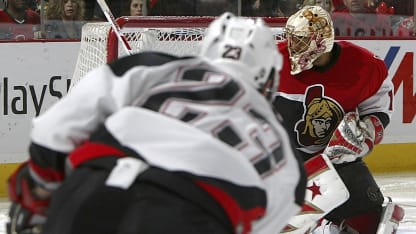Sabres Classics: Drury's goal caps wild Game 1 vs. Ottawa
Catch the game Monday at 8 p.m. on MSG

© Dave Sandford/Getty Images
Inside the Numbers: 2006's 7-6 win vs. Ottawa
Catch the game Monday at 8 p.m. on MSG

© Dave Sandford/Getty Images
Inside the Numbers: 2006's 7-6 win vs. Ottawa